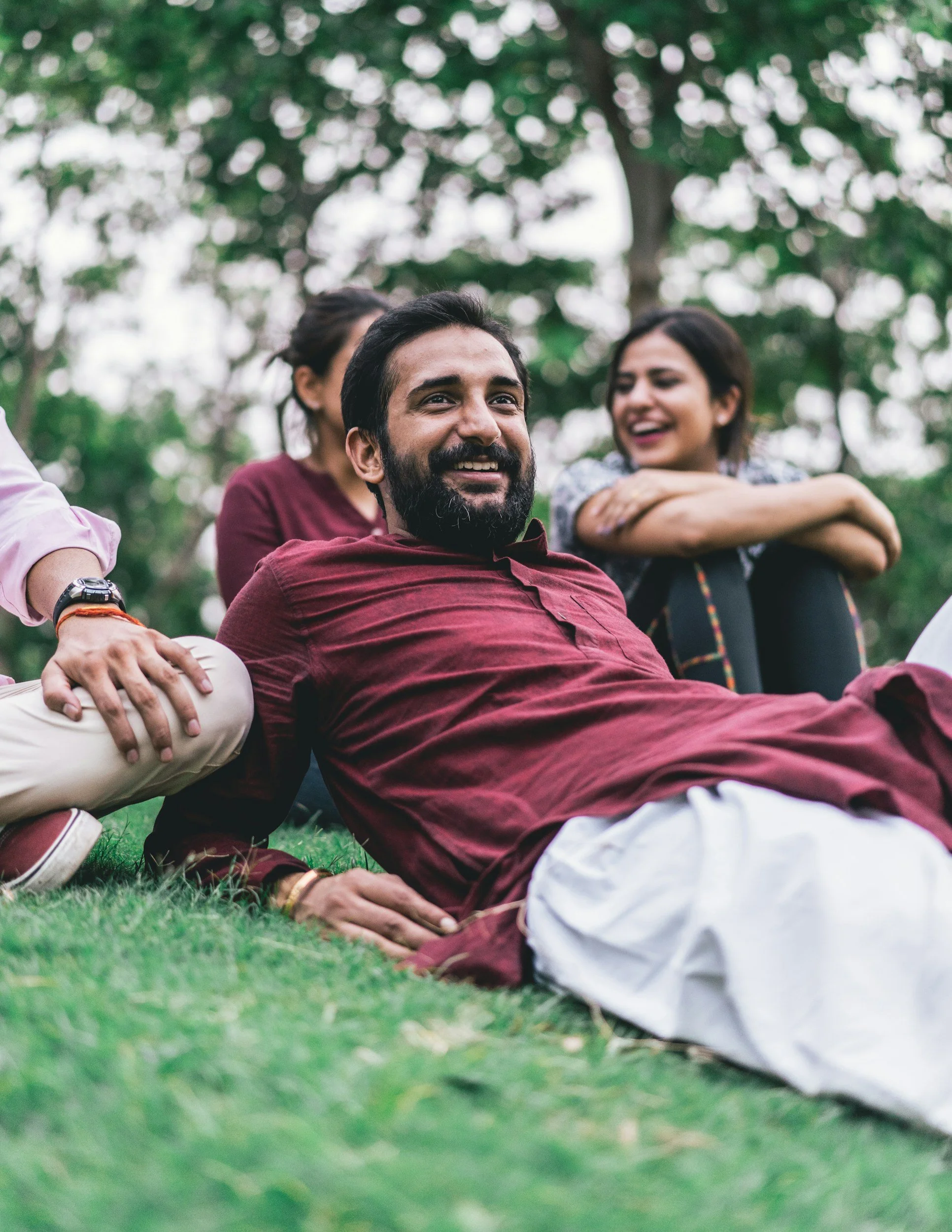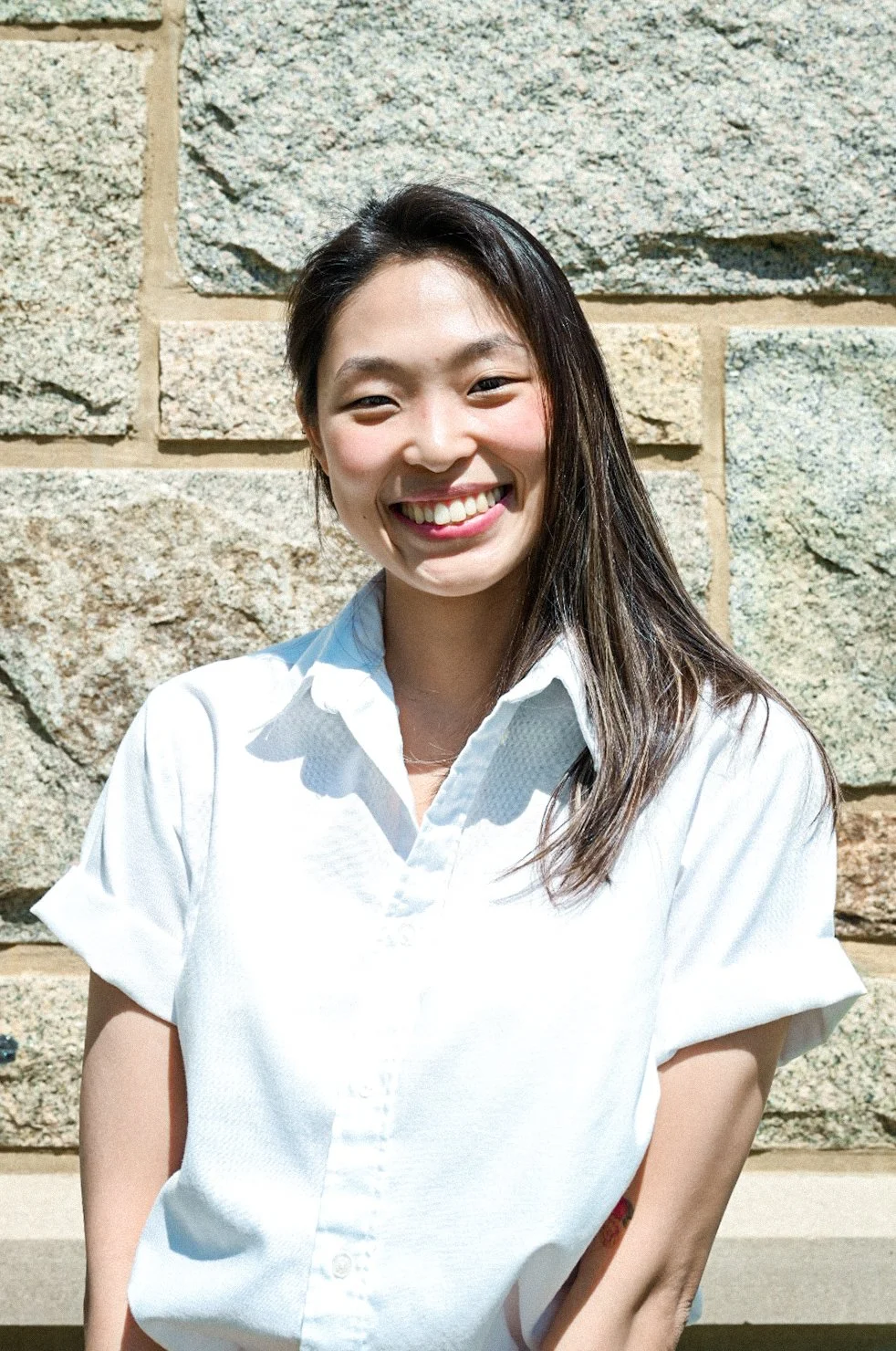Virtual Support Group for People-Pleasing in Asian Families
Culturally Responsive Support for Asian and Asian American Adults Who Struggle With Boundaries
Feel like you're always the responsible one? Struggle to say no, especially around family?
You don't have to carry this alone.
Our online community program supports Asian and Asian American adults who often find themselves overcommitting, avoiding conflict, or putting others first at the expense of their own well-being.
Together, we’ll explore the cultural and emotional roots of people-pleasing through reflective prompts, community dialogue, and practical boundary tools. This space offers a gentle way to unlearn internalised guilt and rebuild self-trust through compassion and cultural care.
What Is a Support Group for People-Pleasing?
This online support group is for those who grew up with strong expectations to be the “good one,” the helper, or the caretaker in their families.
Facilitated by a therapist who is deeply trained and has experience supporting Asian clients while also navigating these dynamics in her own life, this group offers a blend of trauma-informed care, relational healing, and culturally grounded reflection. Together, we will:
Explore how culture, family, and survival shape people-pleasing
Reflect on your emotional boundaries and communication patterns
Work through guilt, fear, and self-worth in a safe and supportive space
Practice self-validation and begin naming your needs without shame
Connect with others who understand these struggles from the inside out
You don’t have to choose between honoring your family and honoring yourself. This group creates space for both.
Who Is This Support Group For?
This group welcomes adults (18+) who:
Identify as Asian, Asian American, or part of the Asian diaspora
Find it hard to say no, even when exhausted
Often overfunction or take on responsibility to keep peace
Feel guilt or anxiety when setting boundaries
Want to reconnect with themselves without rejecting their family or culture
Value a space that is identity-affirming and culturally responsive
You don’t need to have therapy experience or have it all figured out. We’ll meet you where you are, with gentleness, care, and shared understanding.
Group Facilitator & Therapist
Shannon Kang, M.A.
Associate Psychotherapist
Shannon is an associate psychotherapist who brings an anti-oppressive, trauma-informed, and culturally responsive lens to her work with individuals navigating anxiety, life transitions, cultural dislocation, and identity exploration.
As a veteran and third culture kid, Shannon holds deep respect for how systems, migration, and intergenerational experiences shape both pain and resilience. She understands what it means to feel caught between worlds, whether cultural, professional, or personal, and creates space where clients can begin to reclaim their voice, power, and wholeness.
Her approach integrates Narrative Therapy, DBT, CBT, and strengths-based practices with a justice-oriented lens, helping clients build tools while honoring their lived stories. She is especially passionate about supporting people who have felt pressure to mask, code-switch, or carry more than their share, and believes therapy should be a place where the full self, messy, complex, and beautiful, is welcome.
Clients often describe Shannon’s presence as grounding, compassionate, and thoughtful. She believes therapy is not only about coping but also about self-liberation: rediscovering the values, joy, and creativity that help you live more intentionally.
Support Group Details
Format: Online
Duration: 1-hour weekly sessions (Day and Date depends on form submissions)
Next Cycle Starts: October 15th 2025
Cost: $50 per session. Sliding scale available. Please contact us or register to learn more.
Location: Available to adults residing anywhere in the United States.
What to Expect in a Session
Grounding and gentle check-in
Group conversation or story-based reflection
Cultural context and emotional tools
Optional sharing and discussion
Self-kindness and boundary-setting practices
You will never be pressured to share more than you are ready for. Each session is designed with care, flexibility, and your emotional safety in mind.
-
・Reflect on how people-pleasing shows up in your life and relationships
・Set intentions and explore shared group agreements for care and connection
・Begin building safety through grounding and values-based storytelling -
・Explore how culture, family dynamics, and survival have shaped your patterns
・Name messages you received about being “good,” responsible, or self-sacrificing
・Reflect on how these patterns may have served you and where they feel heavy now -
・Unpack guilt, obligation, and the fear of disappointing others
・Begin identifying your emotional boundaries and what gets in the way of asserting them
・Use journaling and optional sharing to externalize and reframe self-criticism -
・Reflect on how language, silence, or non-verbal expectations shape emotional expression
・Explore the tensions between collectivism, individual needs, and communication styles
・Practice more compassionate ways of relating to family and self -
・Reclaim agency by noticing where you shrink, perform, or suppress your voice
・Explore what self-trust and healthy assertiveness could look like
・Practice gentle expression through prompts, roleplay, or inner dialogue work -
・Challenge the idea that disagreement equals disrespect
・Learn to tolerate discomfort in conflict while staying grounded in your values
・Share tools and affirmations for navigating hard conversations with care -
・Envision how your relationships could shift when self-worth is centered
・Reflect on acts of self-loyalty and internal safety
・Celebrate moments of growth and boundary-setting, no matter how small -
・Integrate your reflections into everyday life with flexible tools and self-practices
・Build a roadmap for ongoing care, connection, and community
・Close the group with affirmation, sharing, and next steps





